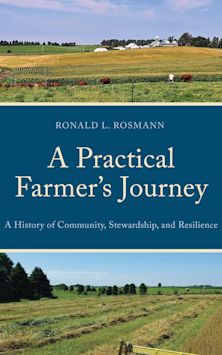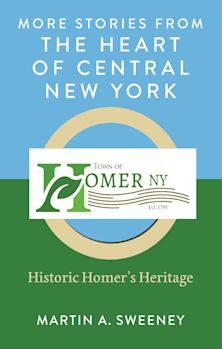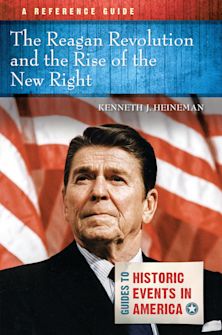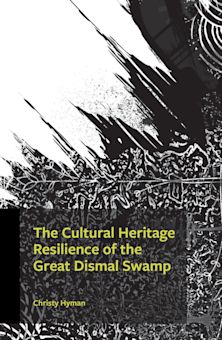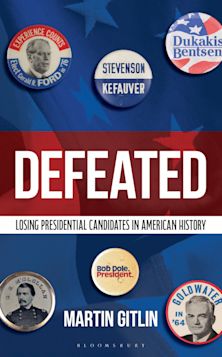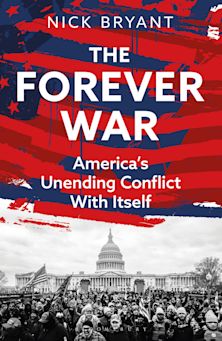Shapers of the Great Debate on the Civil War
A Biographical Dictionary
Shapers of the Great Debate on the Civil War
A Biographical Dictionary
This product is usually dispatched within 10-14 days
- Delivery and returns info
-
Free UK delivery on orders £30 or over
Description
With the conclusion of the Mexican War in 1848, the United States seemed poised to fulfill the manifest destiny that was on the lips of journalists and politicians. Yet, even before the war was over, tensions over the issue of slavery erupted. Slavery symbolized the social, cultural, constitutional, and economic differences that were dividing the North and South. Through four years of bloody civil war and the loss of over 600,000 lives, the American republic decided the fate of slavery, asserted the supremacy of the federal government over state authority, and began to grapple with the difficult issues of reconstruction. This work provides substantial biographical entries of 20 individuals who shaped and defined the debates during the Civil War period. Political and military figures, such as Abraham Lincoln and Robert E. Lee, writers such as Harriet Beecher Stowe, and abolitionist reformers, such as Frederick Douglass and George Fitzhugh, are included.
With the conclusion of the Mexican War in 1848, the United States seemed poised to fulfill the manifest destiny that was on the lips of journalists and politicians. Yet, even before the war was over, tensions over the issue of slavery erupted. Slavery symbolized the social, cultural, constitutional, and economic differences that were dividing the North and South. Through four years of bloody civil war and the loss of over 600,000 lives, the American republic decided the fate of slavery, asserted the supremacy of the federal government over state authority, and began to grapple with the difficult issues of reconstruction. This work provides substantial biographical entries of 20 individuals who shaped and defined the debates during the Civil War period. Political and military figures, such as Abraham Lincoln and Robert E. Lee, writers such as Harriet Beecher Stowe, and abolitionist reformers, such as Frederick Douglass and George Fitzhugh, are included.
Each biography provides a concise account of the subject's life, followed by an analysis of the figure's role and contribution to the central issues of the day, and concludes with a bibliography of secondary and primary sources available to students. An appendix of over 180 additional biographies highlights the lives of others who played a role in the debates of the Civil War.
Table of Contents
The Bloody Career of John Brown
Too Late to the Prize: James Buchanan
Freedom National: The Life of Salmon Chase
The Stubborn Resolve of Jefferson Davis
"Let the Voice of the People Rule": Stephen A. Douglas
From Slavery to Freedom: Frederick Douglass and the Struggle for Equality
The Fear of Freedom: George Fitzhugh and the Pro-Slavery Argument
The Eccentric Genius of Horace Greeley
Andrew Johnson and the Challenge of Impeachment
Abraham Lincoln and the House Divided
Duty and Stoicism: Robert E. Lee
The Young Napoleon: George Brinton McClellan
The Triumphs and Contradictions of William H. Seward
Alexander Stephens: Diminutive Whig Statesman
Thaddeus Stevens: Radical of Radicals
Literary Soldier in a Noble Cause: Harriet Beecher Stowe
Charles Sumner and the Struggle for Equality
Clement Laird Vallandigham: Leader of a "Respectable Minority."
Submission or Secession: The Tragic Career of William Lowndes Yancey
Short Biographies
Product details
| Published | 30 Jul 2005 |
|---|---|
| Format | Hardback |
| Edition | 1st |
| Extent | 436 |
| ISBN | 9780313317453 |
| Imprint | Greenwood |
| Dimensions | 235 x 156 mm |
| Series | Shapers of the Great American Debates |
| Publisher | Bloomsbury Publishing |
Reviews

ONLINE RESOURCES
Bloomsbury Collections
This book is available on Bloomsbury Collections where your library has access.
















